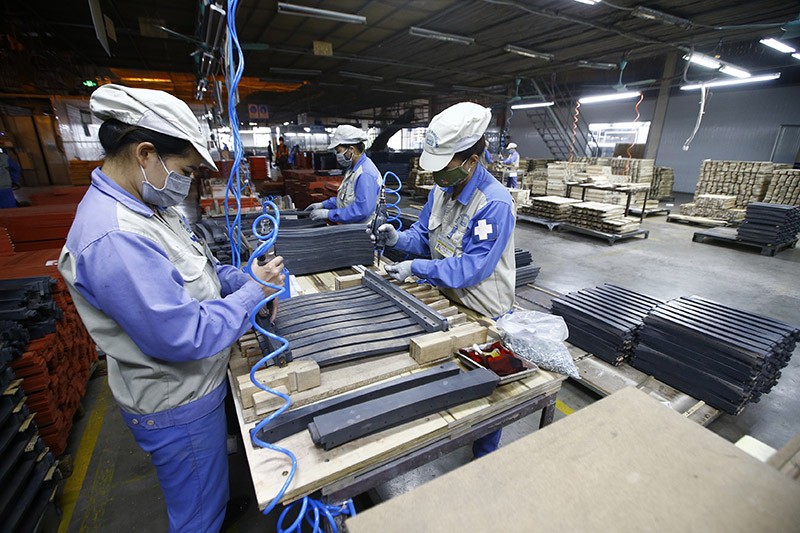 |
| According to experts, it is necessary to carefully analyze the "health" of the business to find appropriate solutions. (Source: Investment Newspaper) |
Thorough analysis of business "health"
In preparation for the 6th Session of the National Assembly next October, the National Assembly's Economic Committee has just conducted an examination of the implementation of the 2023 Socio-Economic Development Plan and the 2024 plan.
Reporting on this content, Deputy Minister of Planning and Investment Do Thanh Trung summarized that the socio-economic situation in 2023 continues to have a positive recovery trend, with each month being better than the previous month, each quarter being higher than the previous quarter, achieving the set general goals and many important results in all fields.
“Based on the results of the first 8 months, it is estimated that for the whole year of 2023, at least 10/15 targets will meet and exceed the set targets,” said Deputy Minister Do Thanh Trung. As for the GDP target, according to the report, it is “striving for the highest level”; the Consumer Price Index (CPI) is expected to exceed, estimated to achieve 3.5%/4.5%.
One of the results stated in the full report of the Ministry of Planning and Investment is that the work of developing the business force continues to be actively implemented, promoting linkages, joint ventures, digital transformation, improving competitiveness, and participating more deeply in domestic and regional value chains.
In August 2023, over 14,000 new businesses were registered, an increase of 2.3% in the number of businesses and 6.6% in registered capital compared to July 2023 (an increase of 17.9% in the number of businesses and 3.9% in capital compared to the same period in 2022). In the first 8 months, 149,400 businesses entered the market, 103,700 businesses registered for new establishment and 45,700 businesses returned to operation.
These figures have not reassured the delegates attending the review session of the National Assembly's Economic Committee.
Mr. Dau Anh Tuan, Deputy Secretary General of the Vietnam Federation of Commerce and Industry (VCCI), said that one of the worrying signs is the high rate of businesses leaving the market and the rate of new business establishment decreasing, even though 2023 should be an important period for new businesses to increase even more strongly.
Recalling the important goal in private economic development of 1 million enterprises by 2020 and 1.5 million enterprises by 2025, Mr. Tuan said that with the current pace of new enterprise establishment, such a large and important goal is very difficult to achieve. This is also a forecast signal that employment and budget in the coming time will be difficult.
Thinking that it is necessary to carefully analyze the "health" of enterprises to find solutions to improve this index, Mr. Dinh Ngoc Minh, a specialized member of the National Assembly's Economic Committee, impatiently raised the issue: "The report only states how many enterprises were established this year. Expert Tran Dinh Thien said at the Vietnam Economic - Social Forum 2023 that our enterprises are very hard-working and enduring, but they cannot grow. Is it because of policies or something else that they cannot grow?"
According to Mr. Minh, when a business is established, it has available capital but gradually runs out, then when it comes to borrowing from banks, it also gets heavily in debt. "We need to report how many businesses are in debt and how many are not in debt to banks. From there, we can calculate long-term policies for businesses," Mr. Minh suggested.
“In one month, 16,500 businesses withdrew from the market, and newly established businesses also faced difficulties. Those who withdrew from the market were strong, while those newly established businesses contributed limitedly to the market,” commented Mr. Vu Hong Thanh, Chairman of the National Assembly’s Economic Committee.
Policies that make businesses laugh and cry
Coming from an agency that regularly receives information about business difficulties, VCCI Deputy Secretary General Dau Anh Tuan said that in 2023, there will be a number of issues that will greatly affect the business community. “No other year has had such a big impact,” Mr. Tuan emphasized.
Typically, the delay in value-added tax (VAT) refunds has a huge impact on businesses, especially those in export industries such as wood, rubber, electronics, etc.
“Some large-scale enterprises like Lioa, exporting to hundreds of markets, currently Lioa leaders said that they have stopped all export activities and thousands of workers have had to stop working. This is a tax refund issue. Of course, there are differences in views between the tax sector and enterprises, but clearly the consequences of this policy on domestic manufacturing enterprises with good brands like Lioa are unprecedented,” Mr. Tuan gave an example.
The next example mentioned by Mr. Tuan is Decree No. 132/2020/ND-CP regulating tax management for enterprises with related-party transactions, the goal is to combat transfer pricing, but in fact regulates many domestic enterprises.
“Since the end of 2020, interest rates have been very high. When interest rates are high, borrowing costs increase. Currently, many businesses are both laughing and crying, falling into a very tragic situation, because the business context is very difficult, but borrowing costs and the loan-to-capital ratio are high, due to the adjustment of Decree 132, so additional taxes are charged. Many businesses reflect that they are facing extremely difficult times, but there is currently no assessment, research, or review of this matter,” Mr. Tuan reflected.
“The State Bank has reduced interest rates four times, but has it hit the difficulties of businesses? Somewhere in the present, disbursement procedures are still difficult for businesses and require other fees (such as insurance fees) when wanting to borrow,” said Mr. Nguyen Hai Nam, Standing Member of the National Assembly’s Economic Committee.
Delegate Nam analyzed that currently, enterprises have 3 sources of investment capital, including fiscal policy, monetary policy and foreign investment capital. Regarding fiscal policy, the disbursement of public investment in 8 months was more than 42%, so the disbursement speed must be 3 times higher in the last 4 months to reach the disbursement target this year. Regarding monetary policy, credit in 8 months only increased by 5.5%, while the target is 14.5%, showing that credit growth is also a pressure. Meanwhile, bad debt on the balance sheet increased by 3.56%, higher than the target of under 3%, putting pressure on capital costs, meaning that commercial banks must set aside additional provisions.
"The government needs to analyze the financial situation more carefully to find solutions," said Mr. Nam.
Responding to this issue, Deputy Governor of the State Bank Pham Thanh Ha affirmed that the State Bank has tried its best to provide credit to the economy and lower interest rates, but the difficulty here is the absorption capacity of the economy when aggregate demand is weak and business health is problematic. Therefore, more synchronous solutions are needed to promote increased orders, expand the market and increase the guarantee mechanism for small and medium-sized enterprises when their financial and business plans do not meet the requirements of the bank.
Regarding VAT refunds, in the case of Lioa, Deputy Minister of Finance Vo Thanh Hung said that this enterprise is relatively large. Since 2019, Lioa's revenue has reached over VND 8,500 billion, but its contribution to the budget is very low, less than 0.1% (0.089%) of revenue, meaning it is at risk and must be inspected.
Mr. Hung added that from 2019 to now, there have been 31 times the tax refund agency has made tax refunds. In the 32nd and 33rd periods, businesses requested a tax refund of 60 billion VND, and 10 billion VND was processed in cases where there were sufficient invoices and documents.
Regarding the remaining 50 billion VND, after verification in Dong Nai and Hung Yen, many enterprises and factories that are raw material inputs for Lioa are "ghost enterprises".
“We have transferred this matter to the investigation agency to investigate and verify. The tax agency will fully perform its functions. In case of complete documents, it will refund the enterprise according to regulations,” Mr. Hung affirmed.
Source





![[Photo] Visiting Cu Chi Tunnels - a heroic underground feat](https://vstatic.vietnam.vn/vietnam/resource/IMAGE/2025/4/8/06cb489403514b878768dd7262daba0b)







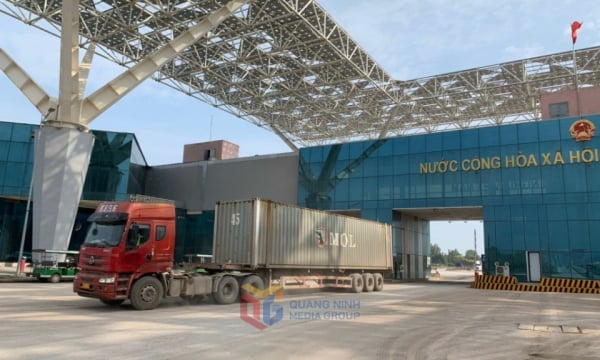












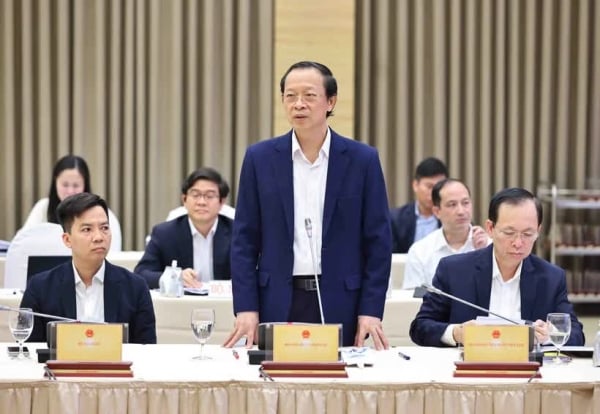



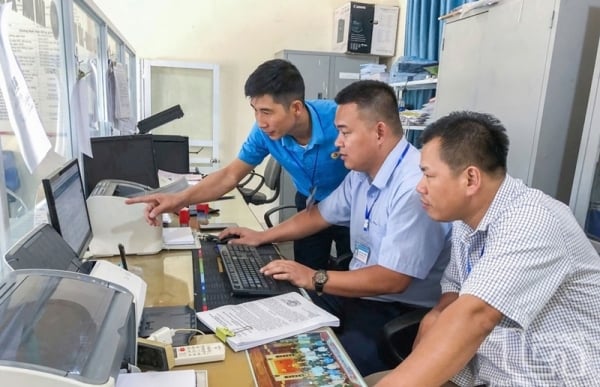
















































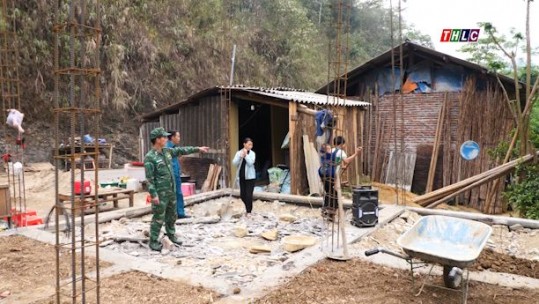













Comment (0)